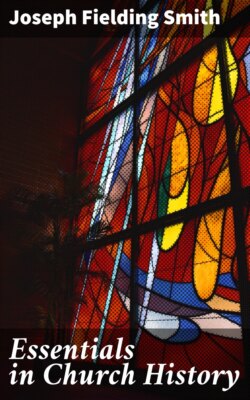Читать книгу Essentials in Church History - Joseph Fielding Smith - Страница 154
На сайте Литреса книга снята с продажи.
Duties of Elders, Priests, Teachers, Deacons and Members
ОглавлениеTable of Contents
An apostle is said to be an elder. His calling is to baptize and ordain other officers in the Church. It should here be explained that at the organization of the Church and for some time thereafter, the officers mentioned here were all that were needed. As the Church expanded the Lord revealed the duties of other officers in their time. Elders are to baptize, confirm members, preach, expound the scriptures, administer the sacrament and take charge of meetings which are to be conducted “as they,” the elders “are led by the Holy Ghost, according to the commandments and revelations.”
The priest is to teach, expound, baptize and administer the sacrament. He may ordain other priests, teachers and deacons, but cannot lay on hands for the gift of the Holy Ghost. He may take the lead of meetings in the absence of higher authority. It is his duty to visit the home of the members and exhort them to pray vocally and in secret and to attend to all family duties. When called upon he is to assist the elder in his duties.
The teacher is to be the guardian of the Church. He is to see that there is no iniquity in the Church, neither lying, backbiting, or evil speaking among the members, and to see that the Church meet together often and that the members perform their duties. He is to take the lead of meetings if there is no elder or priest present and may assist them in their duties. He cannot baptize, confirm, or administer the sacrament.
The deacon is to assist the teacher and other officers in the Church, but he cannot baptize, confirm, or administer the sacrament.
